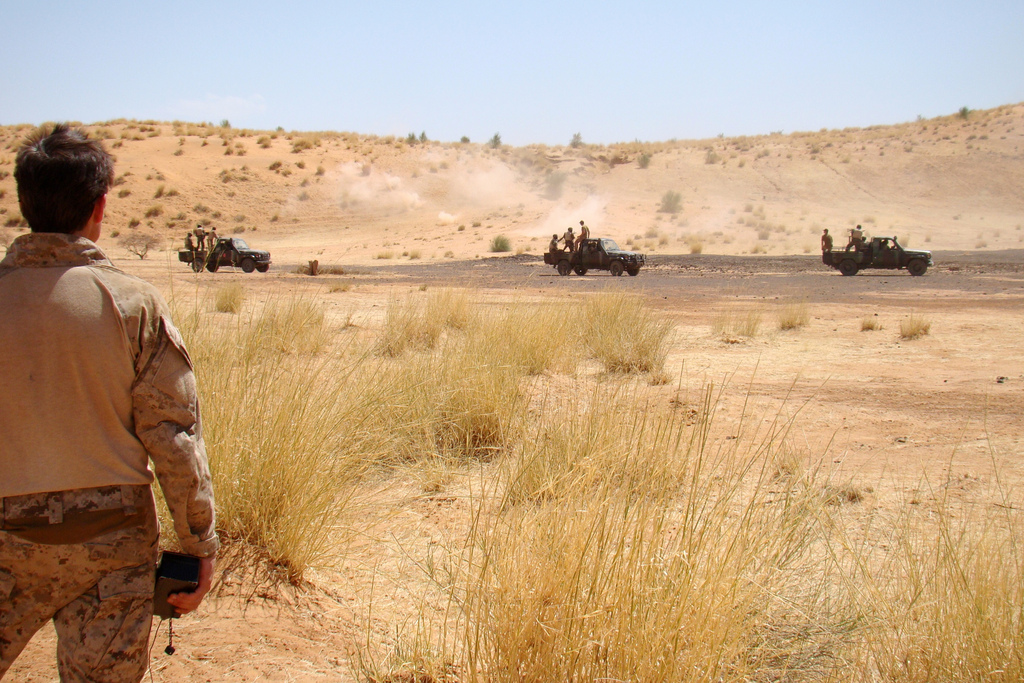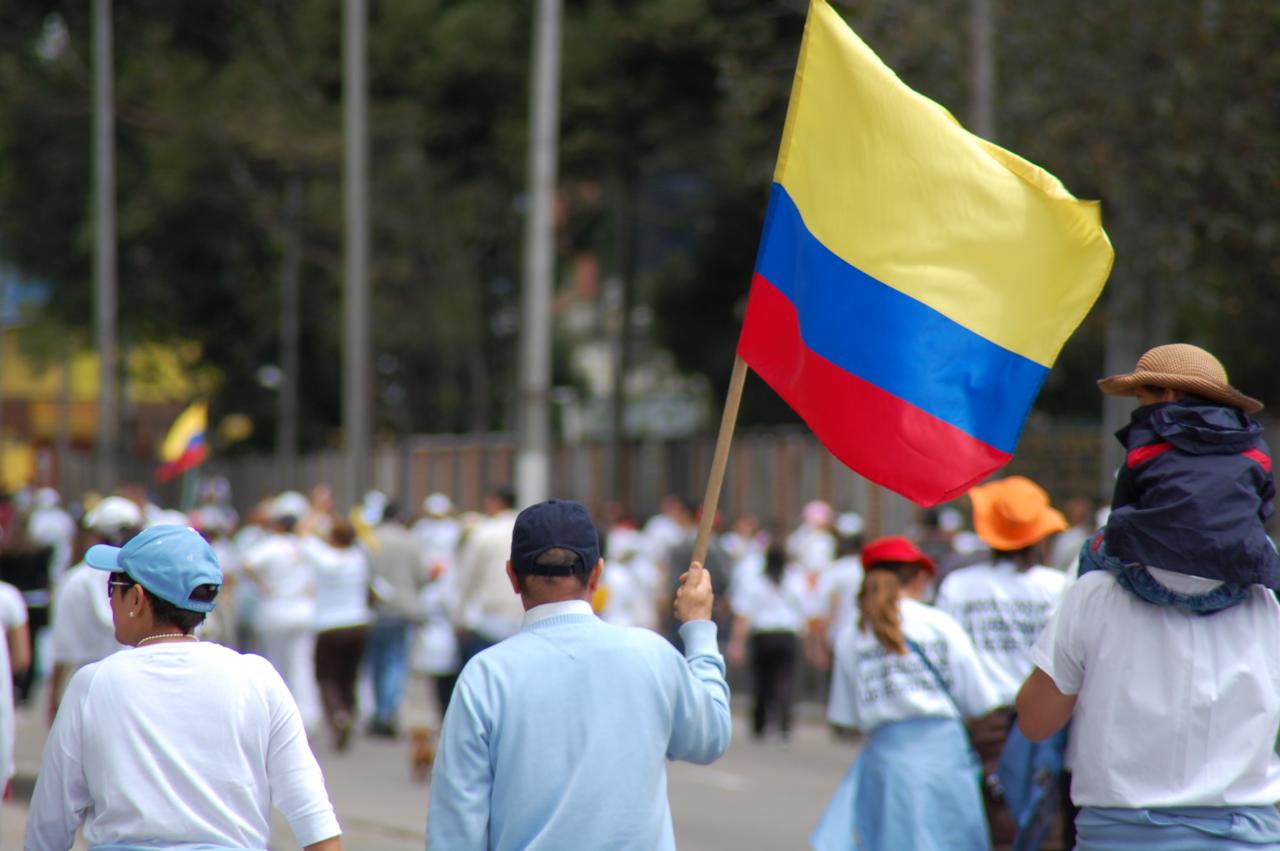By Michael Kalin for Denver Dialogues.
After gaining control over vast swathes of territory around Lake Chad and northern Mali between 2012 and 2015, violent extremist groups like Boko Haram and al-Qaeda in the Islamic Maghreb (AQIM) are reportedly in retreat. Although armed groups continue to use the countryside as staging grounds for their activities, military progress by the states of the Sahel seems evident. The key question now is what will these states do to win the peace? Instead of merely being satisfied with controlling towns and urban centers, local governments must consider how to effectively counteract the presence of violent militants in the marginalized hinterlands. Part of that toolkit will almost certainly include using religious figures for public outreach to counteract the lure of violent extremism.
Counterinsurgency strategy has typically sought to win the peace by wresting civilian support (“hearts and minds”) away from insurgents through the provision of security and material incentives. In certain respects, rebel groups themselves have employed a similar approach of offering limited governance services—as well as threats—to win local allegiances and consolidate their own position. Militants in the Sahel have, for example, inserted themselves as intermediaries between the state and local pastoralists over a range of issues such as grazing rights, tax collection, and the exploitation of natural resources. Such alliances have allowed them to find refuge and collaboration and weather years of attack from government forces.
Still, our understanding of how counterinsurgency can induce cooperation has largely overlooked how such interventions play out in settings where social identities are nested, where they interact competitively, and where social identities may be in tension with one another.
Consider the longstanding effort at religious ‘pacification’ by local governments across the Sahel. In Chad, the Supreme Council for Islamic Affairs (CSAI) has engaged in a broad effort to control and systematize Islamic schooling and preaching, imposed bans on burqas, censored sermons, and expelled clerics and NGOs that it suggests may be inciting violence. Beyond just cracking down on what it does not like, the Chadian state is actively promoting a version of Sufi Islam over and above these so-called ‘politicized’ streams of Islam. Virtually identical efforts are also underway in Niger, Mali, and the states of the Maghreb.
Partly for this reason, it’s become commonplace for observers to suggest that certain kinds of Islamic ideologies—notably Salafism, but particularly its Wahhabi variant—are more inherently belligerent and linked to violent extremism. Meanwhile, forms of Islam such as Sufism are portrayed as essentially tolerant, peaceful, and politically quietist.
Yet, this reading of Islamic history in the Sahel is deeply anachronistic. Sufi leaders were instrumental in several cases of state formation in Africa that involved violent militancy. Consider the establishment of the Sokoto Empire in present-day Nigeria by Uthman dan Fodio from the Qadiriyya brotherhood or the Tijanjiyya brotherhood leader, al-Hajj Umar Tall, who founded the Tukolor Empire that extended over present-day Guinea, Senegal, and Mali. Elsewhere, Sufis were prominent leaders of violent resistance movements to European colonial ventures: Abd al-Qadir al-Jazairi led armed resistance for almost two decades against the French conquest of Algeria; the Sanusiyya brotherhood fought the French in the Sahara and the Sahel from 1902 to 1913, as well as the Italians from 1911 onwards.
Indeed, policies by contemporary states in the Sahel directly evoke the means by which colonial France dealt with the Muslim populations in its African territories. Once it annexed the region in the early 20th century, France established branches of the Bureau of Arab and Islamic Affairs from Dakar to Algiers. It did so in order to surveil local Muslim communities, prevent them from mobilizing around the supposedly “politicized” Islamic reformist currents gaining waves elsewhere in the Middle East. These methods were carried out while also promoting the ostensibly “peaceful”— i.e., politically quietist — interpretation of Islam that was seen as characteristic of the Tijaniyya Sufi brotherhood that accommodated French hegemony in Africa compared to less supportive Sufi organizations such as the Sanusiyya and Qadariyya brotherhoods.
Nowadays, policy discussions about solving violent extremism continue to conflate not only the idea of non-violence with political quietism, but also the religious actors believed to represent these distinct notions. Inside and outside the region, decision-makers frame the issue of countering violent extremism in Islam as countering Salafism by promoting the teaching and influence of Sufism. When incorporated into contemporary counter-insurgency and state-building, however, such efforts can sow the seeds for future threats to peace. Strengthening the power of certain groups may ultimately counteract efforts to gain the allegiance of at-risk populations. As such, the assumptions behind institutional designs risk failure without fully considering the implications of sub-national competition and inter-group status hierarchies among religious and other social groups in the Sahel.
Michael Kalin is a postdoctoral research fellow at the Sié-Chéou Kang Center for International Security and Diplomacy at the Josef Korbel School of International Studies, University of Denver.






2 comments
I do think that the teachings of Sufism are more inclined toward tolerance and peace than Wahhabism, but nonetheless, point well taken that this goes far beyond theology. Knowing leaders like Idriss Deby, they’re probably more interested in neutralizing Islamic insurgents through divide-and-conquer.